Proxy for a long time comes along with scraping, parsing, anonymization, and many other spheres of application. And residential IPs are still valued among the more pronounced options for any projects in this field. Let’s look at this server and type in all details.
Understanding Residential Proxies
To fully get into the principles and understand the benefits of residential proxy, we need to start with the basics.
What is a Residential IP Address?
A residential IP is basically an address that was set by the ISP for a regular user device. So, the computer or phone that you are reading this article with probably also utilizes a residential IP.
When you connect with the internet provider, it automatically assigns this unique IP to your exact device. And if you possess multiple devices with internet access at your house, all of them will have unique addresses the whole time.
What is a Residential Proxy?
Residential proxy, as the name states, fully utilized all benefits related to this kind of IP. The provider is granting you connections to the IPs of real devices with clean addresses that look like totally legitimate users.
With such a proxy, you will be able to send requests and perform any of the needed jobs without extra risks. In the eyes of the anti-bot systems, you look clean and will be treated as a typical and regular user. To fully protect yourself from the risks of block, you also should use different user agents and IP rotation that we talked about later.
What Does a Residential Proxy Do?
In basic terms, residential proxies meaning is coming down to redirecting your basic requests in order to hide your actual IP. If you are planning to start scraping of any kind with no proxy, you simply will face an almost constant block. So, basically, this will be called an answer to the question of what are rotating residential proxies?
How Residential Proxies Work
The whole procedure is actually rather simple. In regular situations, when you need to see content on site, you just send a direct request, and the site will reply directly to you. Proxy in this case will be acting as the man in the middle.
So, instead of the direct regular connection, you will send all of this to a server first, in order to mask your actual one. From the site perspective, all requests will be coming from the proxy and not your device.
This is why a setup like this actively reduces the risk of getting blocked. Instead of your real device identificator, only the proxy IP will be flagged. But you can switch this IP right after the block and continue your tasks.
Types of Residential Proxies
Residential IPs can come in lots of different ways and forms. Let’s look and compare several of the major options and see the definition of residential proxies.
Rotating vs. Static IP
These two kinds of proxy can have a wide scope of applications along with their unique features. In this manner, rotating proxies have a variable for automatic change of the IP. Parameters for this change can usually be set separately, for example, to automatically rotate addresses whenever you face a block.
Static proxies can maintain one address over long periods of time so that you can perform more time-consuming and sensitive activities. This also covers the topic of how to get residential IPS.
Dedicated vs. Shared Proxies
These two kinds of servers are even easier to tell apart. With a dedicated or premium proxy, you will have full and sole access to the needed server. And with the shared option, on the other hand, one IP can be utilized by several users simultaneously. At PrivateProxy, we use only the dedicated or premium proxies, so this option guarantees no interference with your tasks, so you can buy residential static proxy to check all of this for yourself.
SOCKS5 vs. HTTP/HTTPS Protocols
Proxy usually supports either one of these protocols, so you can choose any of them in context of your current tasks. HTTP is a widely used and adapted option, but SOCKS protocol can use both UDP and TCP protocols. In the end, the choice between these options should be summed to the parameters of your project.
Use Cases for Residential Proxies
Residential IPs remain one of the most popular options on the market, so they have an extensive number of applications. Let’s look at several main spheres of application for your servers and see how to use residential proxies.
Web Scraping
When we talk about proxy, web scraping will be the first task that utilizes residential IPs. With a proxy on board, you can collect lots of information without any major risks of getting a block.
SEO Monitoring
The same way you can harvest data to track the current SEO positions of your site or portals of your competitors. Proxy also serves as a layer of protection from block, plus you can target separate markets with different countries for your IPs.
Ad Verification
With large marketing campaigns, ad verification becomes an essential process. residential proxies usage can provide you a way to stay on top of the whale and extract data about ad placements across different sources and even countries.
Social Media Automation
With all the same tools, you automate posting and management in your profiles. Servers like this can provide a fully automated experience for the work with platforms to save a great amount of time.
Price Monitoring
With harvesting options on board, any analysis of extensive amounts of data won’t become a problem for you. Proxy can provide a contact with a great amount of pieces of information for you to work with across several platforms and sources in parallel.
Private Browsing
The major options lie in IP masking. Basically, what a residential proxy does is switch your IP to a server one. This feature alone can serve as a great option for anonymity. With a proxy in your system, you can avoid suspicious tracking and control from portals that you visit.
Accessing Local Content
Your select proxy IP in practically any needed country around the world to connect with the region-specific content. In this manner, you can watch streaming apps and enjoy different content in each of the countries.
Travel Fare Aggregation
The same applies for differences in content depending on the region that you choose; prices for tickets are also changing. So with a server on board, you can select the best deals among all others.
Sneaker Bots
Shoe-selling sites nowadays have extremely sophisticated anti-bot systems, so without a proxy, you can not participate in the majority of the available limited runs.
Pros and Cons of Residential Proxies
Just as any other solution, residential IPs have their own upsides and disadvantages. The major features that we already talk about come down to the clean IP around the whole of your experience, wide geo-distribution, and strong ability to resist possible blocks.
Downsides in this case can lie in more of an unstable connection compared to the other options because of the IP source and wide distribution of clients. Because of this, residential servers also tend to fail more often, but in general that will be all of the problems.
Are Residential Proxies Legal?
Yes, they totally are if they get access to them ethically. Some providers can trick other users to share their IP with no consent. In this case, the whole work of the proxy can turn gray, if not totally illegal.
At PrivateProxy, we offer fully ethically correct IPs for your tasks. The source of our IPs lies directly in ISPs. Providers directly share available IPs with us to distribute.
Residential Proxies vs. Datacenter Proxies
These two types have some things in common, but generally are pretty distinct. As said before, residential IPs are built from regular user devices, so they are way trickier to track and ban, but they are also less stable and fast.
Data center proxies, as the name states, are hosted on the datacenter infrastructure. On one hand, this brings more advanced speeds of connection, but at the same time, you are exposed to a substantial risk of being banned because of the structure of such IPs.
Choosing the Right Residential Proxy Provider
The current server market has lots of different options related to providers. Let’s look at the main parameters that can help you make the right choice and answer the question, what is residential proxy network?
Factors to Consider
The major parameters to consider when choosing a server come down to the reputation of the provider, size of the pool, and variety of other functions and options offered that can be critical to you exactly. It is also a good practice if the supplier can offer a free trial prior to you purchasing any servers.
Evaluating Provider Ethics
Another highly important, and in this situation with the residential IP, crucial piece, is provider ethics. You should pay attention to how the IPs for your use are collected. Put differently, you can even face legal actions directed at you.
How to Get and Use Residential Proxies
So how to get a residential ip address? You can purchase a proxy IP and start using it in a matter of minutes. First, you should select the needed type, location, and other server parameters you want to use, and then proceed with payment. Proxy IPs will immediately appear in your dashboard on site, so you can start using residential rotating proxies with unlimited bandwidth.
Configuration Steps
Proxies can be configured in several easy steps. To integrate the server directly in your system, simply open available network options and find the option for the proxy’s setup. Then simply add data for connection and press the save button. After this, your server will be active.
Alternatives to Residential Proxies
Right at the moment, there is no full alternative to residential or ISP proxies functionality. The collection of functions that these types of servers offer remains unique.
Datacenter options can replace some of the options, but they will still be lacking in other spheres. In the end, the ultimate choice here will depend fully on your current tasks and sphere of application.
Frequently Asked Questions
Please read our Documentation if you have questions that are not listed below.
-
What does residential proxy stand for in basic terms?
Basically, a residential proxy can be described as the dedicated server where you send your requests. The server then retranslates them to the needed site or portal, masking your real IP address in the process.
-
How do residential proxies compare to other proxy types?
Residential proxies remain one of the most popular proxy types among other options. Compared to other proxy types, the residential one is the most convenient and universal for most of the tasks.
-
How do residential proxies work?
Actually pretty simple. You can think of computers that are located in other countries. You simply connect to this computer and use its IP address for further connections.
Top 5 posts
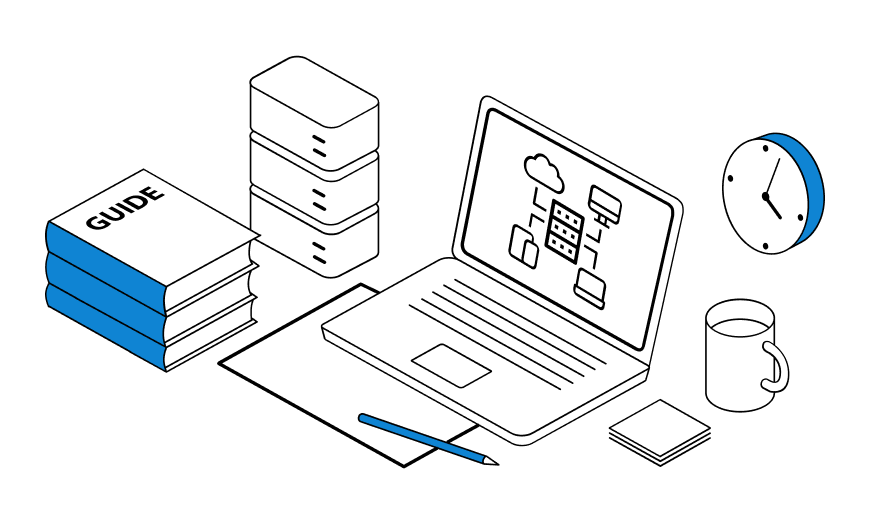

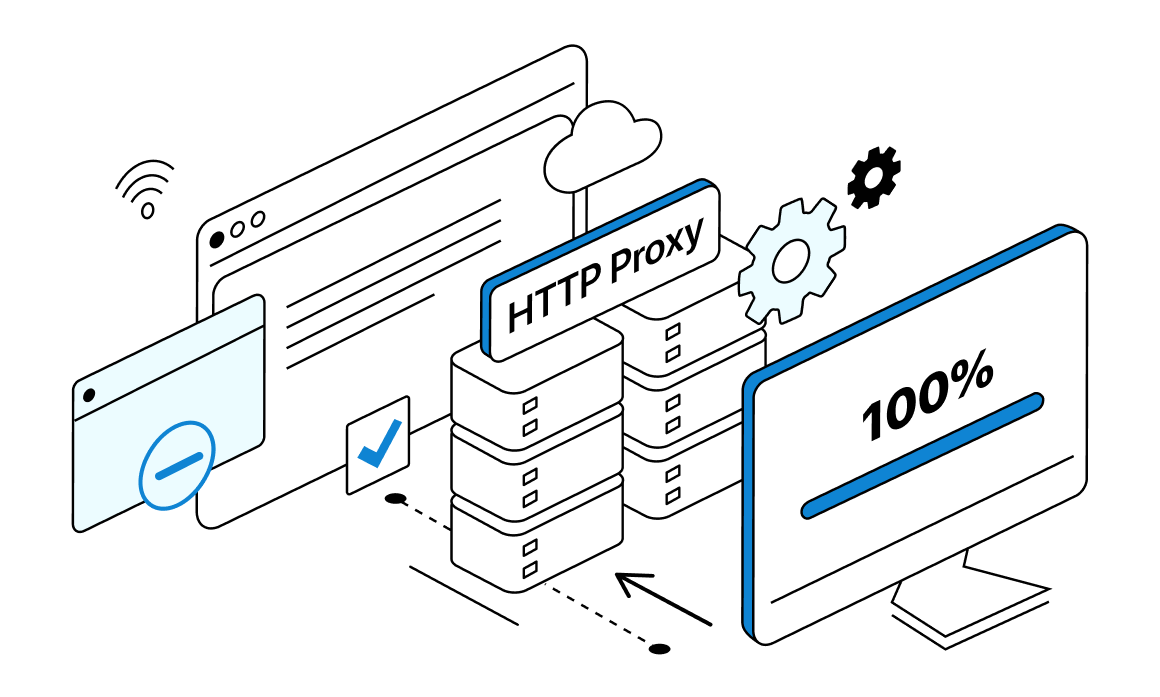

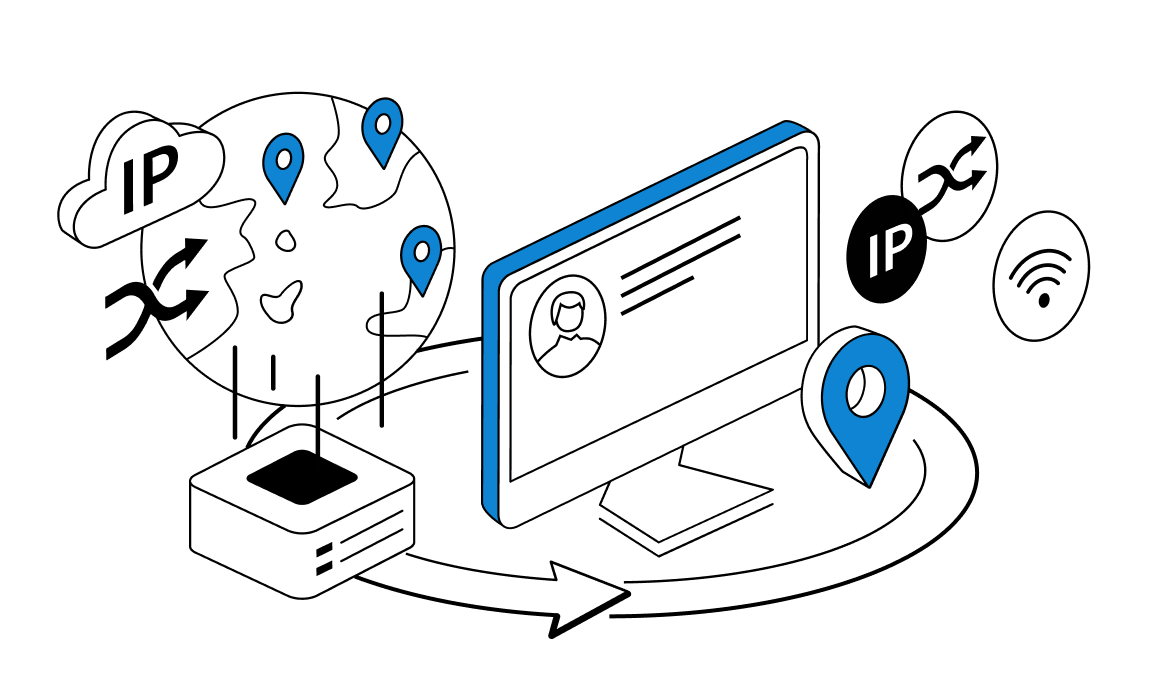
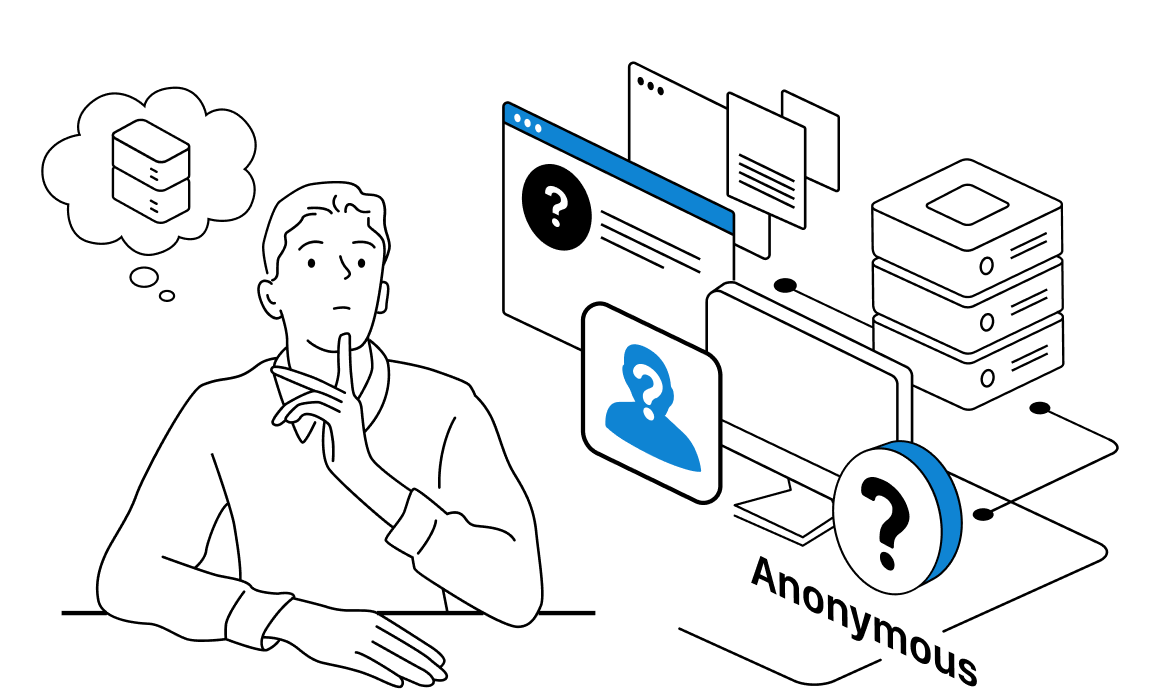
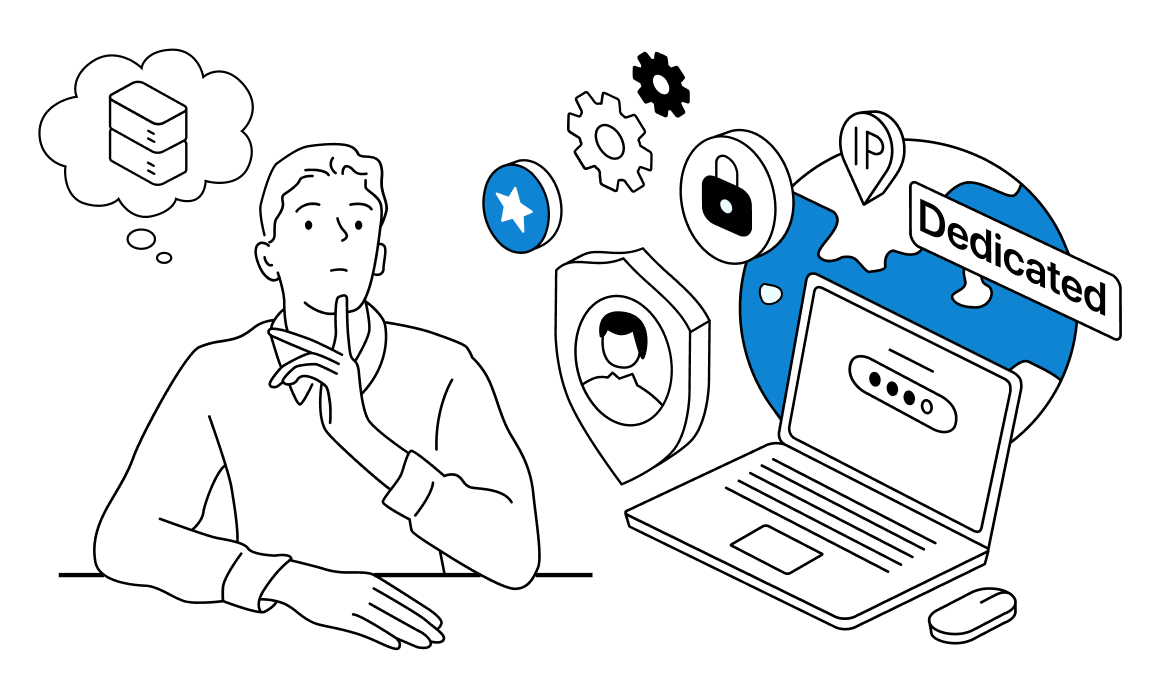

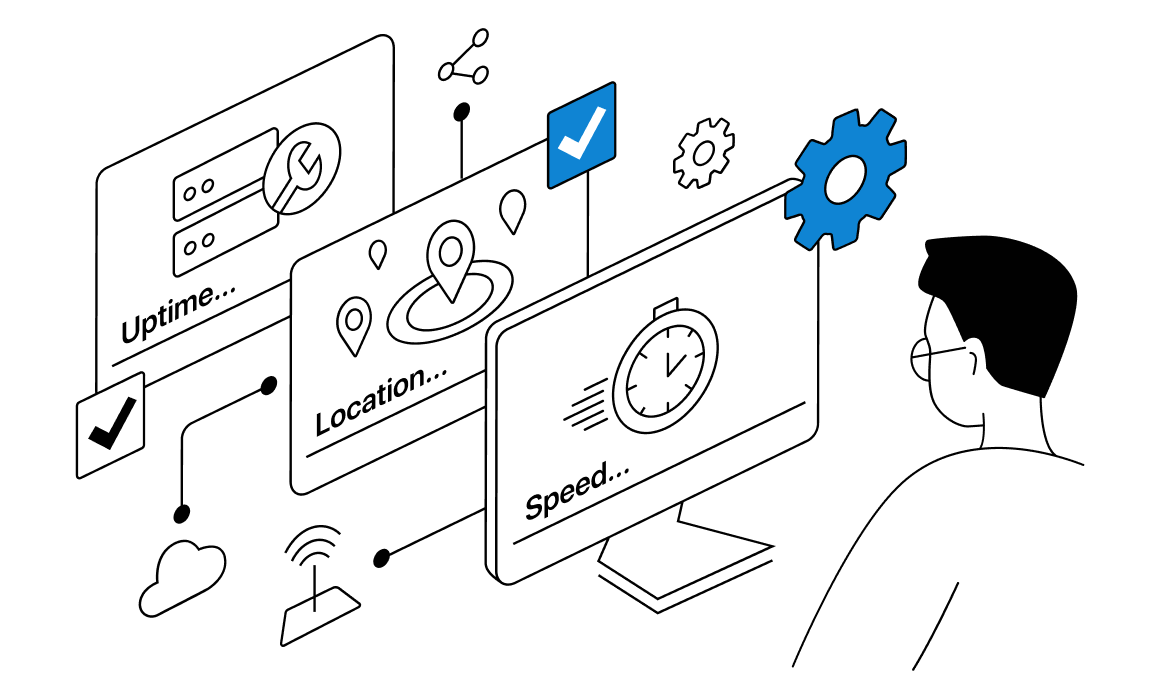
To define the HTTP proxy meaning, we need to clarify the concept of the Internet protocols and their role in categorizing various proxy servers.